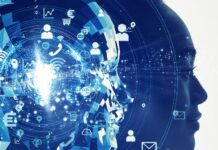Psychologists and behavioral scientists are beginning to study how using sophisticated new AI-driven text and image generators affects human creativity, judgment and decision-making.
The big picture: GPT and other generative AIs have been described as job decimators and productivity superchargers. Scientists and developers are poking, prodding, exposing and comparing the capabilities and weaknesses of these tools. But there are equally important questions about exactly how they could affect our own skills and capabilities.
The possibility of more sophisticated AI in the workplace raises an array of questions about its impact on human judgment and decision-making. Those include:
Creativity: With its confident but frequently false statements, generative AI, especially those that create images, may have more to offer in fields where one answer isn’t required and a range of possibilities is acceptable or even desirable.In that sense, it could be “a launchpad for creativity,” my Axios colleague Ina Fried writes.AI could also redefine productivity in the workplace, says Tara Behrend, who studies industrial-organizational psychology at Purdue University.“If anyone can sneeze out 300 words with Chat GPT, maybe saying something original becomes productivity.“It is going to produce cliches, and cliches aren’t actually valuable.”But the bar for creativity or originality is subjective, and it could be unclear what is considered creative — for people and for AIs.Influence: The people around us can sway our decisions and conclusions.
As AI enters the workplace, a big question is: “What are the social influences that are likely to happen working with ChatGPT?” says Gaurav Suri, an experimentalpsychologist and computational neuroscientist at San Francisco State University.“Most people are not using it that way now, but I think that issue is coming.”













